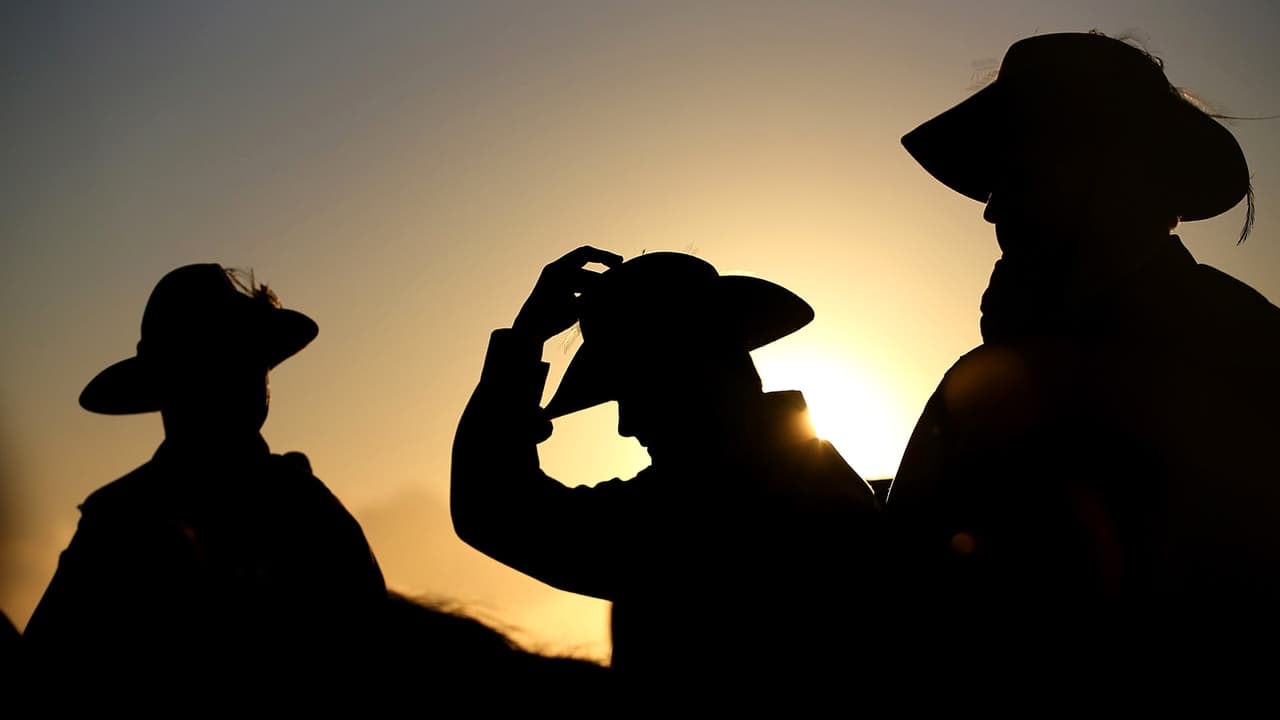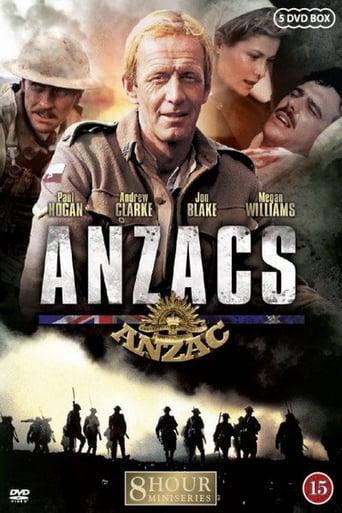

just watch it!
... View MoreThe film was still a fun one that will make you laugh and have you leaving the theater feeling like you just stole something valuable and got away with it.
... View MoreThis movie was so-so. It had it's moments, but wasn't the greatest.
... View MoreGreat example of an old-fashioned, pure-at-heart escapist event movie that doesn't pretend to be anything that it's not and has boat loads of fun being its own ludicrous self.
... View MoreI remember seeing this mini-series on TV in New Zealand back late '80s and falling in love with it. Years later I bought the series from an ABC shop here in Australia and found that it's entertainment value had not been lost.I must admit, I was rather disappointed to hear that it was cut down to movie-length for the Nth American audience. I can't imagine that being done without losing key plot-points. It would be like turning Band Of Brothers into a 120minute film.I think the mini-series captured the sentiment of the soldiers, the politicians, and the families back home quite accurately. There is no denying that this film was made with an Australian audience in mind, and the difference in cultures between varying countries would undoubtedly see some people lose interest in the story-line and/or not understand or appreciate various moments or quotes. The fact of the matter is, there hasn't been enough of this content in this region of the world. All too often we see films depicting Americans as the winners of the wars. Not to discard their participation in either war, and with all due respect to their veterans, we must however remember that on both occasions of World Wars, the USA were rather late entrants. That said, the dialogue between characters was, at times, "Aussied-up" - but surely if we've learnt to understand "American" as a language, it can't be too hard to understand "Australian".Back to the story: By following the same group from the time war breaks out, to after peace has been declared, it's easy to see why so many people have compared it to an earlier, Australian version of Band Of Brothers. The characters are all strong and represent Working-class Australia of the time. Strong and entertaining performances by all, especially Andrew Clarke, John Blake, Christopher Cummins and Paul Hogan (purely the entertainment draw-card).As a born-and-bred Kiwi, I must admit that I'm not in the least offended or put out by the fact that there was basically NO mention of New Zealand in the entire series. I know that without "NZ" they would have been called the "AACS", but this film is a bit of Australiana. Along with "Gallipoli" and "The Light Horsemen", ANZACS is to Australians what "Chunuk Bair" is to New Zealanders.
... View MoreI first saw this series when it was first shown on UK TV on daytime programing??? Who they expected to watch I cannot imagine. I was at home recovering from a serious industrial accident, it was worth the pain and injury to see this epic tale, which was shown with no pre-publicity. When it was repeated on Sunday evenings over a year later I made a point of recording it. When my children raved about the excellent 'Band of Brothers' I promised to treat them to ANZACs. When I eventually sat down with my 15 year old boy, fan of Medal of Honour, Band of Brothers etc. he was for once speechless and we sat till 3.30 am watching the whole series in one sitting in turns crying, laughing and cheering. I cannot imagine any other 'entertainment'? having this effect.
... View MoreNow I don't know about the edited film version (I would never watch it) but the mini series, the original 5 part version, is not only a brilliant piece of work, it stands as an historical document of the great war that has never been bettered and never will. It is essential viewing that we should all be aware of, and what the fight for democracy was all about, it's interesting to see that a modern day 'band of brothers' is very much in the same vein, no glorification, concentrating on the human side, comedy, love, comradeship, death and the utter desolation of being born at that point in history and to take part in that awful war. There are no negatives about this series, it's a perfect synopsis of the human race in the 20th century and the carnage that we are capable of committing, yet the true brotherhood that existed in these times, if only the leaders were capable of it.
... View MoreA sometimes-humorous, sometimes-serious look at Australian soldiers during the Great War, from enlistment, through training, to several campaigns, culminating in the huge battles in France, to the end of the war and back home. The miniseries contains all the elements of an entertaining show: pathos, humour, and accuracy of detail and period. Paul Hogan plays Pat Cleary, a whimsical parody of the knockabout characters of the turn of the century with the irrepressible and uniquely Australian sense of humour. Watch particularly for the character "Flanagan", played by Jon Blake, who gives a stunning portrayal of the epitome of the returned soldier. A brilliant performance and excellent character development.
... View More